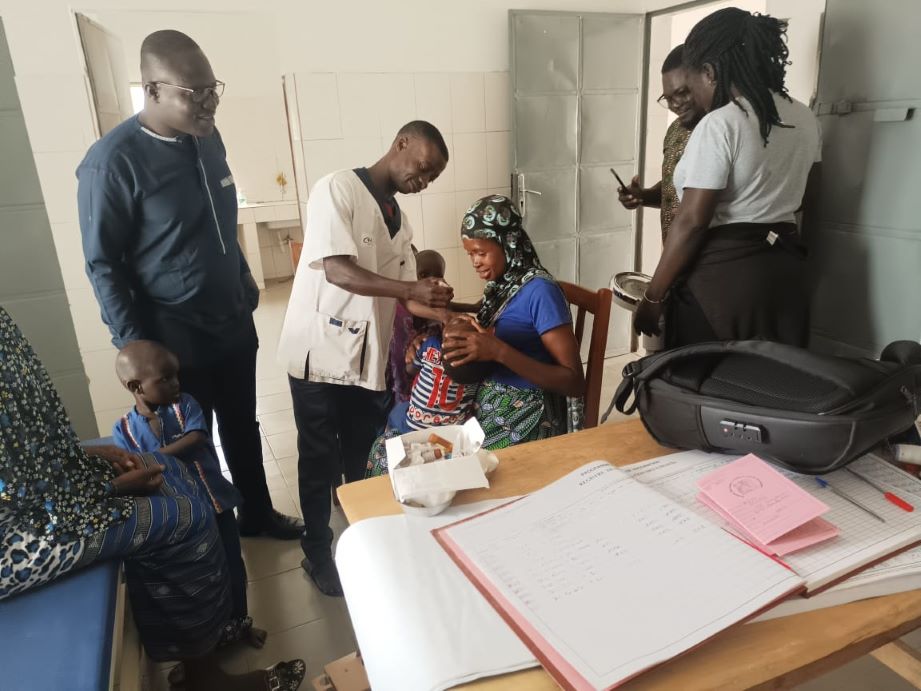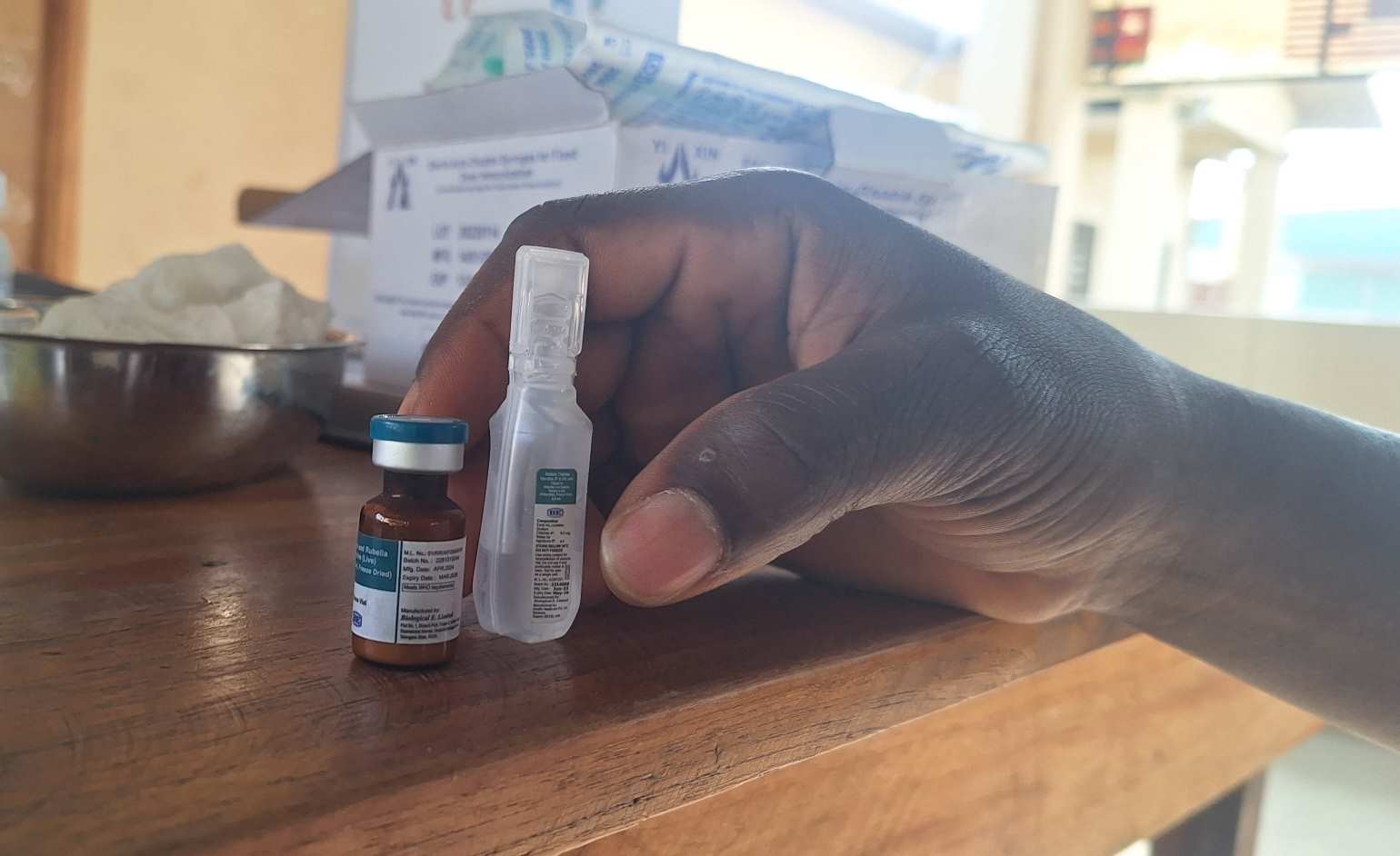Togo introduces the malaria vaccine: a health milestone
Togo has become the first country in Africa to roll out the malaria vaccine across every part of the country.
- 24 October 2025
- 6 min read
- by Nephthali Messanh Ledy
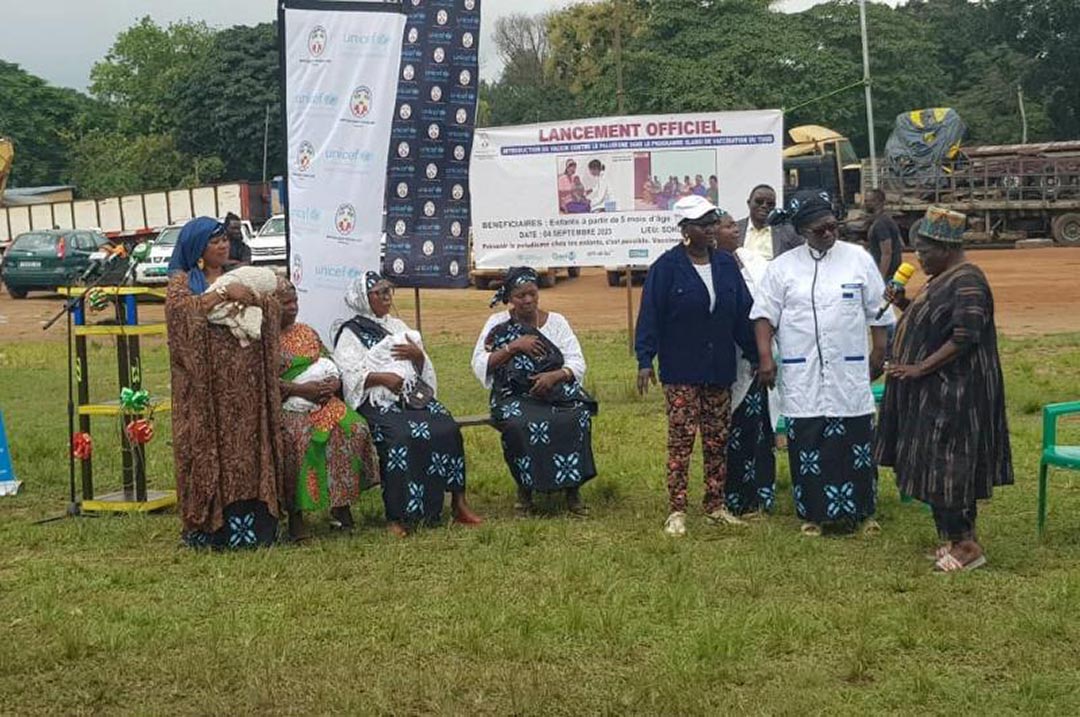
It’s a Thursday in September at the Peripheral Care Unit (USP) of Togokomé, around 20 kilometres east of Lomé. Here, as in the rest of the country, the very first children are receiving their first doses of the malaria vaccine, which officially became part of the country’s routine immunisation schedule on 1 September.
“We raised awareness in the community through various channels, and today we’re ready to take action,” says Rafiatou Ruffino, the medical assistant in charge of the USP. In this centre, Wednesdays and Thursdays are dedicated to immunisation.
The malaria vaccine is administered in four doses: the first three at five, six and seven months of age, followed by the final shot at 15 months.
“We are targeting nearly 270,000 infants each year across Togo’s six health regions to protect this most vulnerable segment of the population,” said Professor Tchin Darré, Minister Delegate for Health.
A relief for families
For many mothers, this new vaccine brings immense hope.
“We were told a few weeks ago that the vaccination would begin in September. It’s a great relief for me and my whole family because malaria affects us so much where we live,” says Akouvi Agnès, a mother of four.
“When one of my children catches malaria, I have to stop my small business to stay home with them,” she adds. From her house, just a few meters from the USP, she sells porridge to neighbours every morning.
Another mother says, “We’ve waited so long for this vaccine, and we’re happy it’s finally here. As soon as I heard about it, I told myself I had to be among the first to have my child vaccinated.”
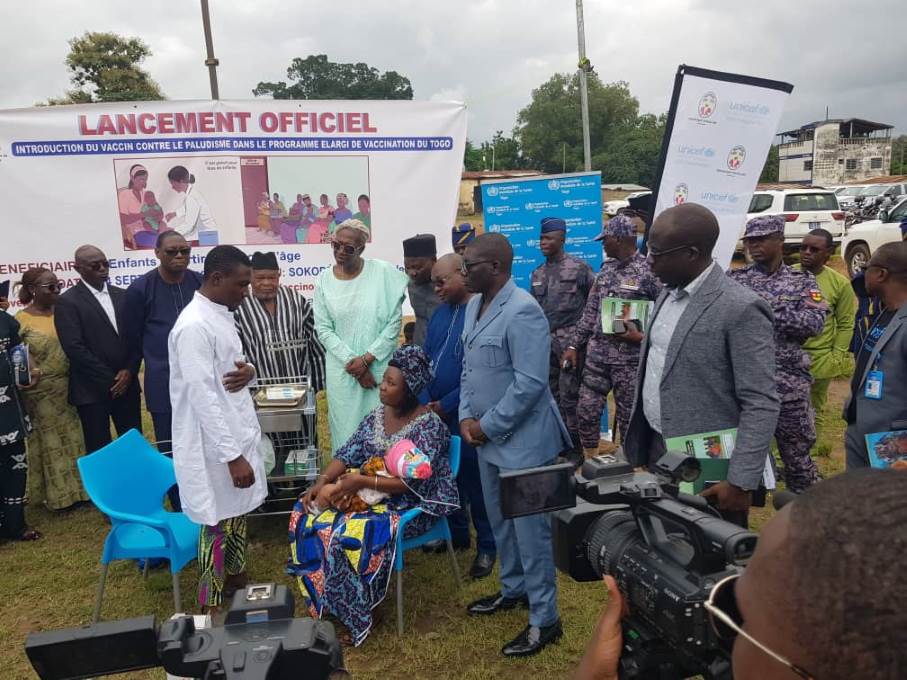
Credit: Nephthali Ledy
Ruffino reminds parents that the vaccine complements, rather than replaces, existing measures.
“Malaria treatment is free – rapid tests, medicines, mosquito nets for pregnant women and infants. This vaccine strengthens what we were already doing.”
Training and community mobilisation
A few kilometres away, at USP Gbodjomé, Abou Gbati, vaccination officer and health promotion focal point for the Lakes Health District, describes the preparations:
“We talk about the malaria vaccine during our educational sessions, community consultations and discussions. Information is shared in real time and at every opportunity. We also use other channels – neighbourhood chiefs, religious leaders and community health workers.”
Vaccinators have been trained in vaccine management, scheduling, strategies and waste management.
Credit: Nephthali Ledy
“We find this launch very salutary,” says El Hadj Sagnadou Katakpao, prefectural president of the Muslim Union of Togo. “This initiative protects our children, and we are relaying this message within our community through our various groups.”
The burden of malaria in Togo
According to data from the National Malaria Control Programme (NMCP), malaria remains the leading cause of illness in Togo, accounting for 40% of outpatient consultations, 25% of hospitalisations, more than 2.18 million cases and 993 deaths in 2024. Seventy percent of those fatalities occurred in children under five.
“I’ve treated several severe cases of malaria, especially among children under five and pregnant women,” says Dr Atassé Serge Koffi, a public health doctor in Lomé. “I remember a two-year-old admitted in a coma after several days of untreated fever. Despite intensive care, the neurological after-effects were severe. These cases show how malaria remains a major threat to life.”
A national and international milestone
It’s against this backdrop of need that the Togolese government is rolling out the R21/Matrix-M vaccine, with support from Gavi, WHO and UNICEF. Togo now numbers among the currently 23 African countries making malaria vaccines available to their youngest citizens.
Togo’s roll-out is also notable for its scope and financing. It is the first country to introduce malaria vaccination nationwide from the outset, while most other African countries have started with geographically phased introductions.
During the official launch ceremony in Sokodé on 4 September, Delegate Minister of Health Professor Tchin Darré noted that “despite sustained efforts such as seasonal chemoprevention, the mass distribution of insecticide-treated nets and improved care, the fight against malaria requires additional and innovative tools.”
The R21/Matrix-M vaccine is one of two similar WHO-recommended malaria vaccines, alongside RTS,S. “It is a safe and effective vaccine, whose safety has been demonstrated through multiple studies across all three phases of development,” said Dr Erinna Corinne Dia, UNICEF Representative in Togo.
Togo’s roll-out is also notable for its scope and financing. It is the first country to introduce malaria vaccination nationwide from the outset, while most other African countries have started with geographically phased introductions.
Togo is also covering 15% of the cost of the vaccine, with Gavi financing the remaining 85% through its co-financing model.
This national contribution enables the government to offer the vaccine to all eligible children across the country – a strong signal of political commitment and a step toward long-term sustainability.
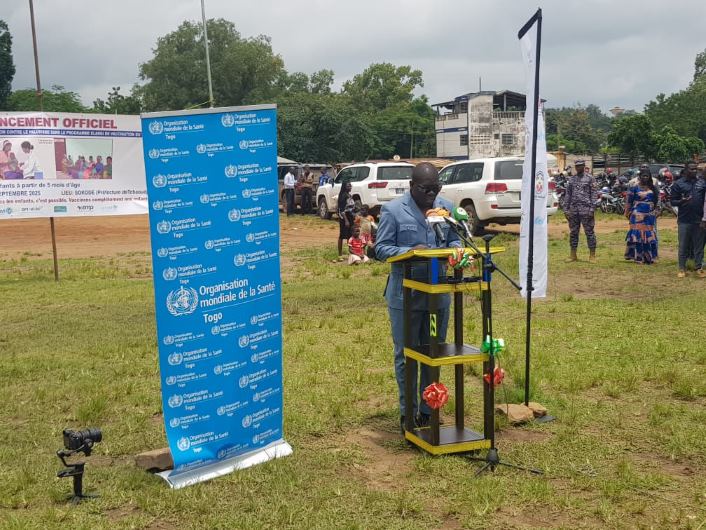
Credit: Nephthali Ledy
Across Africa, more governments are taking on a greater share of vaccine financing. Under Gavi’s co-financing policy, countries gradually increase their contributions as their economies grow. Over the next five years, Gavi-supported countries are expected to finance close to half of the total cost of their vaccines, illustrating a shift toward greater national ownership of immunisation programmes.
Have you read?
A shared ambition
“Our ambition is to steadily increase the coverage of children protected against malaria. And we want strong community engagement so that people understand the importance of this vaccine,” says Dr Atekpe Payakissim Somiabalo, NMCP coordinator.
In a country where malaria still accounts for 65% of paediatric consultations, the stakes are high. Thanks to the joint mobilisation of national authorities, health workers, community leaders and international partners, Togo is entering a new phase in protecting its youngest citizens from one of the deadliest diseases of childhood.
